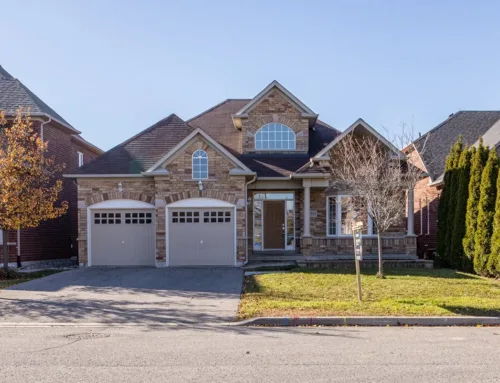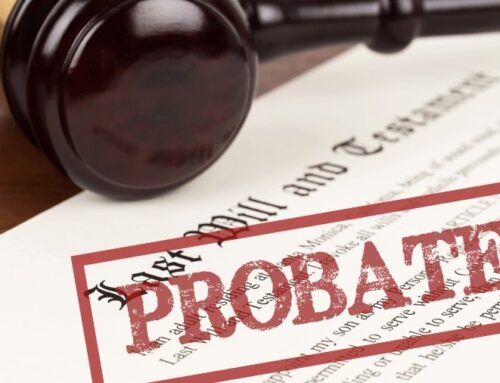Selling a home in probate can be a complex and often emotional process. When a loved one passes away, their estate, including real estate, may go through probate to ensure that their wishes are honored and debts are settled. This blog will outline the key steps involved in selling a home in probate, highlighting essential considerations for heirs and executors. Learn more about ” What is a probate sale and how does It work”
What is Probate?
Probate is the legal process that occurs after someone dies, during which their assets are distributed according to their will (if one exists) or state laws (if there is no will). The process typically involves validating the will, settling debts, and distributing the remaining assets to beneficiaries. Real estate is often one of the most significant assets in an estate, and its sale is a common step in settling an estate.
The Steps Involved in Selling a Home in Probate
1. Initiating the Probate Process
The first step in selling a home in probate is to initiate the probate process. This involves filing the deceased person’s will with the local probate court, along with a petition to open probate. If there is no will, the court will appoint an administrator to handle the estate.
2. Appointing an Executor or Administrator
Once the probate process is initiated, the court will appoint an executor (if there’s a will) or an administrator (if there’s no will). This person is responsible for managing the estate, which includes collecting assets, paying debts, and distributing remaining assets to heirs.
3. Property Appraisal
The executor or administrator must have the property appraised to determine its fair market value. This appraisal is essential for setting a sale price and for ensuring that the sale benefits the estate and its beneficiaries. It may also be required by the court.
4. Seeking Court Approval
Before listing the property for sale, the executor typically needs to obtain court approval for the sale. In many jurisdictions, this involves filing a petition with the probate court, outlining the sale price and terms. The court may require a hearing to confirm the sale.
5. Marketing the Property
Once court approval is obtained, the executor can list the property for sale. It’s advisable to work with a real estate agent who has experience in probate sales, as they can help market the property effectively. The property is often sold as-is, meaning buyers may need to address any repairs or maintenance issues after purchase.
6. Accepting Offers
The executor will review offers as they come in and may negotiate terms with potential buyers. If an offer is accepted, it will be submitted to the court for final approval.
7. Court Confirmation of the Sale
In some cases, especially if there are multiple offers, the court may hold a hearing to confirm the sale. This allows interested parties to present their offers and ensures that the sale is conducted in the best interests of the estate and its beneficiaries.
8. Closing the Sale
Once the court approves the sale, the closing process can commence. The property title is transferred to the buyer, and proceeds from the sale are used to pay off debts, taxes, and to distribute remaining assets to heirs.
Important Considerations
- Legal Guidance: Given the complexities of probate law, it is advisable for executors to seek legal counsel. An attorney experienced in probate matters can help navigate the legal requirements and ensure compliance with local laws.
- Communication with Heirs: Open communication with all heirs is crucial throughout the process. Keeping everyone informed can help prevent misunderstandings and potential disputes later on.
- Tax Implications: Selling a property in probate may have tax implications for the estate. It’s essential to consult with a tax professional to understand any potential tax liabilities resulting from the sale.
Conclusion
Selling a home in probate is a multifaceted process that requires careful navigation of legal, emotional, and financial considerations. By understanding the steps involved and seeking appropriate guidance, executors and heirs can ensure a smoother transition during what can be a challenging time. Properly managing the sale of a probate property can honor the deceased’s wishes while also providing financial relief for the estate.
FAQs
Q: How long does the probate process take?
A: The duration of the probate process varies depending on the complexity of the estate, local laws, and court schedules. It can take anywhere from several months to over a year.
Q: Can I sell a property before probate is finalized?
A: Typically, you cannot sell a property before the probate process is completed. The property must be part of the estate and approved for sale by the court.
Q: Do I need a real estate agent to sell a probate property?
A: While it’s not mandatory to use a real estate agent, having one experienced in probate sales can be beneficial. They can assist with marketing, negotiations, and understanding the legal requirements.
Q: Are probate properties sold as-is?
A: Yes, properties sold during probate are usually sold as-is, meaning buyers will need to address any repairs or issues post-purchase.
Q: What happens if the heirs disagree on the sale?
A: If heirs disagree on the sale, it can lead to conflicts. Open communication is essential, and it may be necessary to seek legal mediation or guidance to resolve disputes.
By understanding the process and implications of selling a home in probate, executors and heirs can make informed decisions that honor their loved ones while effectively managing the estate.











